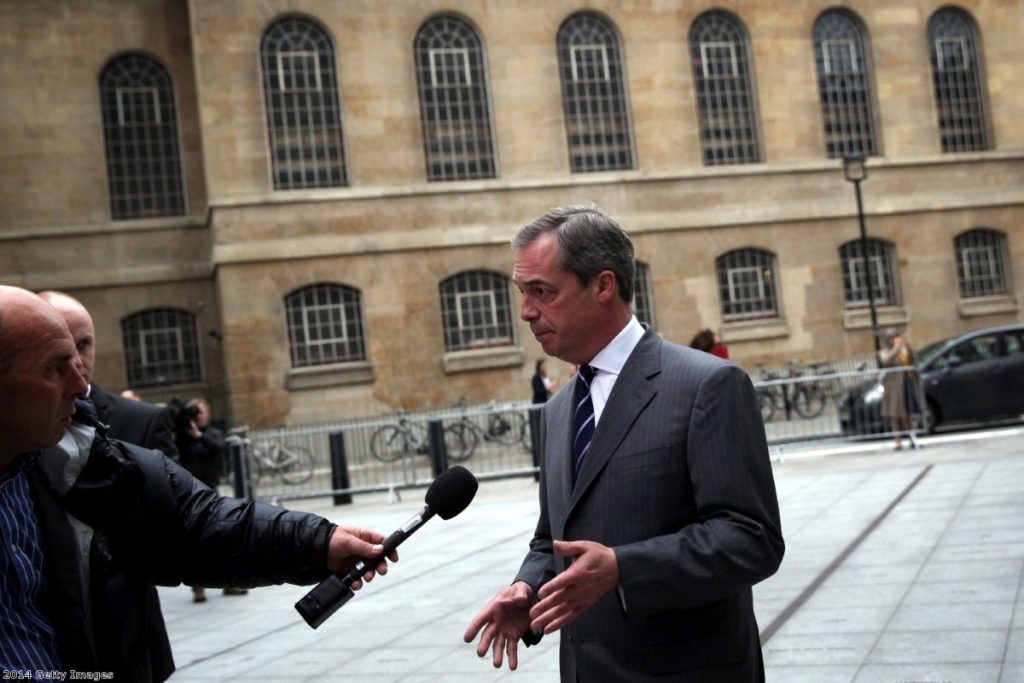Clegg/Farage debate: The case for the EU is dead
Yesterday's debate between Nick Clegg and Nigel Farage was more notable for what wasn't in it.
At no point did Clegg make an argument for the EU. He simply made an argument against leaving. It was a relentlessly negative performance.
If Lib Dem strategists and fellow europhiles are looking with dismay at the poll results, it is for a good reason: they have been unwilling or unable to make an argument for what they supposedly believe in.
After all, the debating tactics of the two men were not so different. The idea, post-debate, that Clegg was much worse is nonsense. He was pretty bad, as was Farage. They were both cynical, unlikable and uninspiring. This was not a triumph of public speaking. It was one of political balancing. Farage was making the case he wanted to make. Clegg was not.


He did not have the bravery, or sense the political utility, in arguing for Europe. These arguments do exist. They are about the declining role of national sovereignty in an inter-connected world. They are about internationalism and the abiding suspicion that patriotism makes us kill more than it makes us care. They are about pooling risk and benefits, in a similar way to how early 20th Century left-wing arguments envisioned that process at the level of citizenship. They are about the bolstering of the bureacrat above the pettiness of party politics, about the creation of a new political consciousness around shared continental identities.
The arguments are wrong: People do think, mostly, in terms of national identity and they are unlikely to stop doing so because well-meaning intellectuals wish it to be otherwise. Patriotism can be a force for good if it is recognised and nurtured rather than rejected. Power flowing to the centre tends to isolate political representatives from the citizenry, rather than turn them into philosopher kings. Most importantly: democratic legitimacy is an irreducible good, not something to be toyed with in the name of grand political projects.
But the arguments' validity was broadly irrelevant because they were not made. Clegg instead made a much smaller case. He argued that Britain was a cog in a machine. All it could aspire to was to hide under the blanket with other countries, so the big players, like the US and China, could take it seriously. It was supposed to sound realistic, but then pessimists always confuse themselves for realists. It was a narrative of despair.
He had other arguments, including an OK line in Britain's modern diversity, but this was irrelevant. He made no effort to show that these qualities are dependent on the EU. The fact they are not shared by many other EU states, including advanced ones like France, suggests they are not.
This was not Farage vs Clegg. It was Farage vs not-Farage. The deputy prime minister was playing firmly in the Ukip leader's sandpit.
If I was a europhile I would despair at the fact that even our leading supporter isn't prepared to make a positive case for the project. What was once, for all its flaws, an aspiration for the future, is now a paranoid protection of the status quo. The case for the EU is dead.

